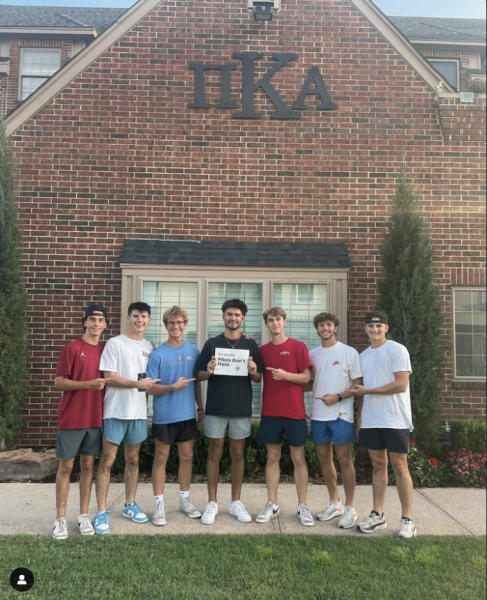Fraternities and sororities, aka Greek Life, have flourished on college campuses since 1775. Colleges originally created these affiliations to represent and create communities.
However, in recent years, Greek Life in the U.S. has experienced a major decline in membership.
Why the Fall? Greek Life’s Reputation
One reason why fewer people are getting involved in Greek Life is because of the reputation of these organizations. Sororities and fraternities have become, perhaps unfairly, known for throwing massive parties and encouraging binge-drinking. These affiliations have a hard time combating the partying stereotypes that media, especially television, have implanted into Greek culture.
However, the Orlando Recovery Center reports that “Most people in Greek-letter organizations are genuinely ashamed of the reckless drinking behavior displayed by fraternity and sorority members on TV. It gives the Greek system a bad reputation and overshadows the numerous benefits of Greek life.”
Whether or not students involved in Greek Life agree remains to be seen. An anonymous source at Delta State said that responsible drinking and partying can be a positive aspect of Greek Life. “It can give people opportunities to get out of their comfort zones and have fun more confidently,” they claim.
Hazing, Assault and Price
Another rumored disadvantage to joining a Greek affiliation is the harm and hazing of the initiation process. Britannica describes hazing as “degrading, humiliating, or dangerous tasks and behaviors.”
Certain social groups perform hazing as an activity to initiate new members. Some instances of this harm and hazing would be physical endurance tasks, humiliation, forced consumption, or physical violence, etc. New members in a chapter participate because they want to gain the benefits of being a full-fledged member.
According to CNN, Phi Delta Psi, a national fraternity in Pennsylvania, was banned from operating and fined $122,500 in 2013 for the hazing death of pledge Chun “Michael” Deng, a student at Baruch College in New York.
Hazing has been a concern in the Greek community for a long time, but in recent years, Nationals have forced chapters to sign anti-hazing contracts. Participating in hazing is already illegal, but the anti-hazing contract adds a more in-depth punishment within the sorority or fraternity.

Although this is not always the case, another scandal surrounding Greek Life involves claims of sexual assault. The New York Times has shown that Greek-associated students are more likely to be sexually assaulted compared to non-Greek participants.
Finally, one of the biggest concerns surrounding Greek organizations is the socioeconomic issue. Many students decide that the benefits of Greek life cannot overcome the price you pay for it.
Here at Delta State, students can pay upwards of about $2,000 a year for their Greek dues. This is considered far more affordable than larger institutions. For instance, at the University of Alabama, chapter dues can reach about $8,500 a semester.
The Brighter Side of Greek Life
Greek Life has numerous opportunities for positive investment in students’ personal lives. For one, Greek afflictions genuinely value sister and brotherhood.
Ellie Hilton, a senior in the Kappa Epsilon chapter of Phi Mu says, “In my opinion, sisterhood is something sort of like a puzzle. We’re all different in our own ways. No one is exactly the same as the other, but when we come together, we all share the same values and come together to make one cohesive unit, just like a puzzle.”
Beyond its social aspects, Greek Life plays a significant role in promoting philanthropy and community engagement. Every Greek organization engages in philanthropic activities and community service projects. Members usually contribute their own personal time, effort and resources to support charitable causes and raise awareness in their own community.
Around Delta State, chapters will often hold philanthropy weeks, like Firemen’s Week or Paddy’s Week, to support their own local philanthropies. During these weeks, the chapter will usually have a special prize or trophy for other chapters to compete after, so that more individuals will participate.
Also, many Greek alumni members maintain strong ties with their chapter or organization. This creates networking opportunities for current members of that specific organization. Every Greek organization at Delta State has a few alumni advisors that continue to help their chapter with whatever the member’s desire. Alumni provide mentorship, internships, job opportunities and career advice to members of their chapter.
Apart from taking action through philanthropy and community engagement, Greek organizations also develop leaders. Greek Life offers numerous leadership roles within their chapters that can be beneficial in future careers. These roles usually include President, Vice President, Membership Director, New Member Director, Treasurer, Social and Secretary.
Promoting Greek Life
Greek Life is a complex organization that promotes both positive and negative aspects.
While significant challenges, such as hazing and social pressures, may negate positive aspects of Greek organizations, students in Greek organizations combat the negative allegations every day.
Many organizations have recently been trying to change their images by posting on social media about awareness of certain real-life problems, or specific posts like “these hands don’t haze.”
Many Delta State students note that Greek Life here is more welcoming and inclusive here than it is at other, bigger schools.
Mozielle Rooks, a new membership director in Phi Mu at Delta State, stated, “Going Greek has helped me get involved on campus, make a lot of great connections and really enhance my college experience as a whole.”




